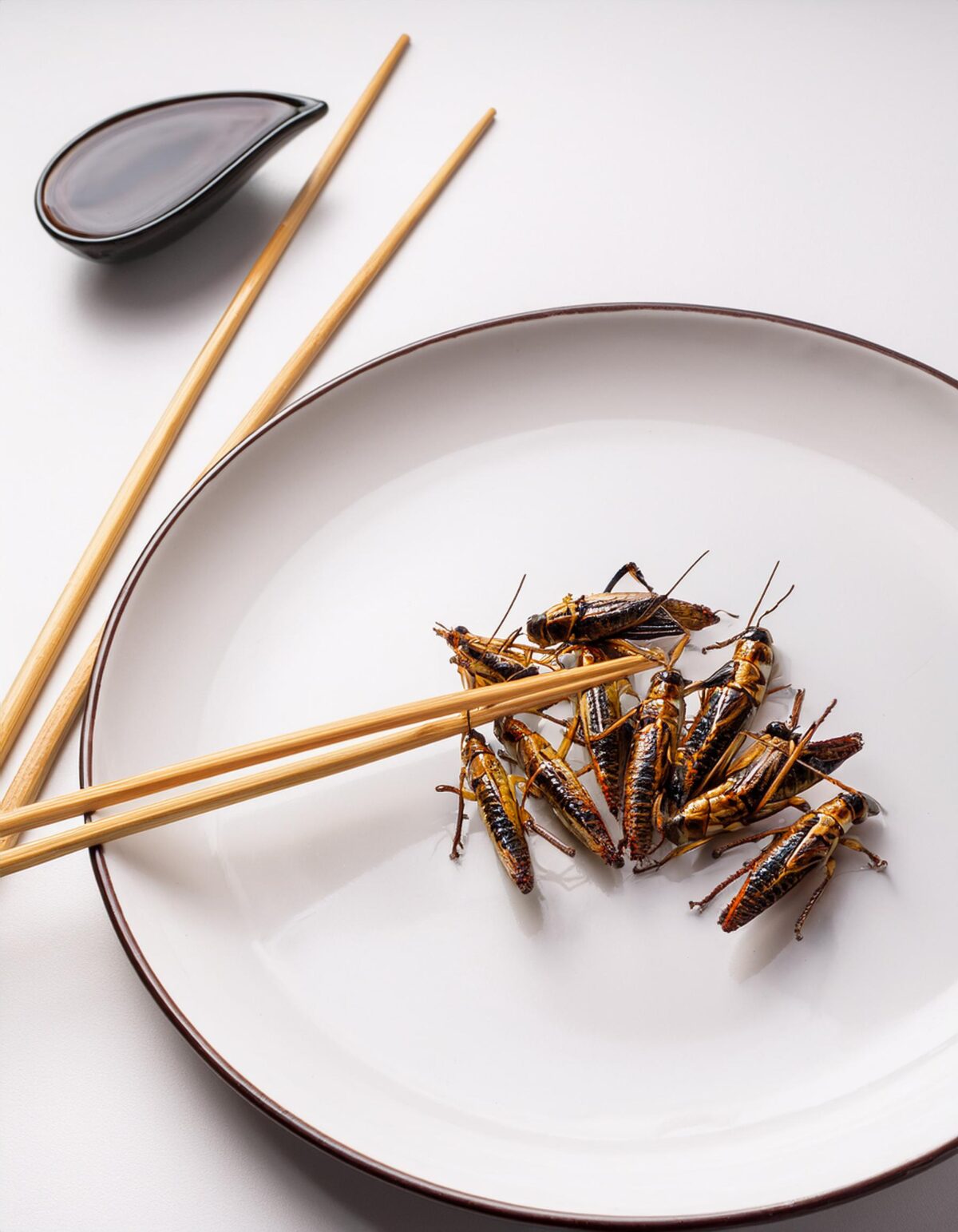Fire-Roasted Insects
We also ate small insects. The insects live in the ground. After plowing, they surfaced. We would start a fire and cook them over it. Some also ate toads, but I didn’t. I was afraid of that. Even now, I still fear it.*1
INGREDIENTS
- Small insects (e.g., earthworms, grasshoppers—depending on availability)
- Optional: salt, spices (if available)
PREPARATION
1. Collecting Insects: After plowing or digging in the ground, insects will appear on the surface. Collect them carefully, making sure they are clean.
2. Preparing the Fire: Start a fire, aiming for even, well-developed flames. You can use wood or other flammable materials to build a stable fire.
3. Preparing the Insects: If the insects are very dirty, you can clean them by gently shaking or sifting them through a sieve. In the absence of water, try to remove visible impurities.
4. Roasting the Insects: Place the insects on the hot coals of the fire. You can place them directly on the embers or on a special grate if available. Roast the insects, turning them occasionally, until they are well-browned and crispy.
5. Seasoning: If you have access to salt or spices, you can add them to the insects while roasting to enhance the flavor.
6. Serving: Once roasted, the insects should be crispy and ready to eat. They can be consumed as a snack.
“With the passing of the years of hunger, the motivation for migration changed. In short, the lure of employment was replaced by the compulsion of hunger. Increasing despair drove some to escape into the mountains, where they hoped to sustain themselves on berries, insects, and small animals where possible, though few succeeded. Some were forced to return to their villages, emerging from the forest disheveled and in tattered clothes, sometimes entirely naked, looking wild and changed to the point of being unrecognizable.”*2
Mao Zedong’s policy during the implementation of the five-year economic plan known as the Great Leap Forward (1958 – 1962) adhered to the slogans: more, better, faster, and cheaper. Mao wanted to make China a leading industrial power in the world at all costs. The implementation of the Great Leap caused unprecedented devastation in every sector of the economy, most drastically affecting rural areas. The countryside was subjected to forced collectivization, with peasants’ property confiscated and them concentrated into giant people’s communes, where food was distributed in communal dining halls based on merit. Various forms of “substitute food,” such as paper pulp, were introduced. Soon, China faced a famine of unprecedented scale that the world had never seen before.
1* From the story of Chef Yan, a cook in a small street restaurant on the outskirts of Chengdu, the capital of Sichuan Province. Yan comes from Ziyang County in central Sichuan, where a large number of people died during the famine. Despite his family’s culinary ingenuity, he lost his father, and his mother suffered severe swelling due to hunger. He and his sisters tried to survive on their own. Even today, he has vivid memories of the various things he and his fellow villagers ate to stave off hunger and survive.
https://brill.com/view/journals/asme/7/2/article-p384_6.xml?language=en
2* Frank Dikotter, “Mao’s Great Famine: The History of China’s Most Devastating Catastrophe, 1958-1962.” Czarne Publishing House, Wolowiec 2013. Translated by Barbara Gadomska, p. 341


 Syria
Syria 